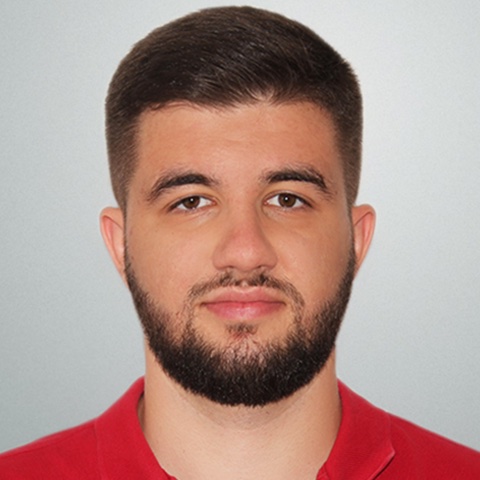The Young Investigator Award, initiated in 1985, is the Children's Tumor Foundation's longest running award program, and provides two-year salary support to early career NF researchers to help them get established as independent NF investigators. Since its inception several YIAs have made groundbreaking research findings and notable publications through this program, and many have advanced to become leaders in the NF research and clinical communities.
New for 2021, additional funding and duration has been availalbe, extending the support to span 3 years. Read more here.
We are pleased to announce the recipients of this latest round of funding, and share a few words about their projects:
 Jordan Kohlmeyer, The University of Iowa, $89,000
Jordan Kohlmeyer, The University of Iowa, $89,000
Defining the RABL6A-YAP axis in MPNST pathogenesis and therapy
NF1 patients are at increased risk of developing malignant peripheral nerve sheath tumors (MPNSTs) due to the possibility of neurofibroma transformation. The proposed work aims to evaluate two powerful cancer pathways – RABL6A and the Hippo pathway – whose dysregulation promotes MPNST pathogenesis. We will investigate how RABL6A regulates the YAP protein to promote MPNST development and will develop new combination therapies for MPNSTs that will have reduced toxicity and high efficacy by specifically targeting the key factors driving their development.
 Lindy Zhang, Johns Hopkins University School of Medicine, $119,000
Lindy Zhang, Johns Hopkins University School of Medicine, $119,000
The effects of RAS signaling pathway inhibitors on tumor cells and the tumor immune microenvironment in malignant peripheral nerve sheath tumors
NF1-associated MPNSTs are resistant to MEK inhibition monotherapy because of activation of alternate cancer signaling pathways. This study will test combinations of MEK inhibitors, SHP2 inhibitors, and CDK inhibitors, which target different signaling pathways, to treat MPNSTs. Additionally, we will also investigate the role of the tumor microenvironment and the impact of various inhibitors on immune cells to design trials of immunotherapy drugs plus targeted drugs for MPNST.
 Sara Pardej, University of Wisconsin-Milwaukee, $64,000
Sara Pardej, University of Wisconsin-Milwaukee, $64,000
Neural Underpinnings of Attention in Children with NF1
Attention difficulties are a common cognitive phenotype in children with NF1, yet very little is known about the underlying neural mechanisms. This research will test the feasibility of electroencephalography (EEG) approaches in children with NF1 to identify potential biomarkers of attention problems. By studying differences in neural functioning between children with NF1, their peers, and children with ADHD, we hope to find unique functioning patterns that can effectively track the impact of medical and psychosocial interventions affecting attention in NF1.
 Jamie Grit, Van Andel Research Institute, $89,000
Jamie Grit, Van Andel Research Institute, $89,000
Targeting inflammatory signaling in cutaneous neurofibromas
Cutaneous neurofibromas (CNF) are a major cause of morbidity in NF1 and clinically behave very differently than plexiform neurofibromas (PNF). Since CNFs rely more on inflammation than the strong MEK signaling that typifies PNFs, they may need different treatment approaches. This study will test diclofenac, an anti-inflammatory COX2 inhibitor ointment, on CNFs, and will determine patient experience and tumor response after treatment. We will also perform correlative studies on treated tumor samples to identify novel biomarkers that will distinguish CNFs from PNFs.
 Isabelle Logan, Oregon State University, $89,000
Isabelle Logan, Oregon State University, $89,000
Signaling pathways regulated by nitrated proteins as novel therapeutic targets for neurofibromatosis type 2
Nitrated proteins are a novel category of NF2 tumor targets as they play a key role in schwannoma growth and are not present in normal cells. The goals of this project are to investigate the regulation of signaling pathways by nitration and to identify the specific nitrated protein(s) that support NF2 tumor cell survival. Besides NF2, these proteins could be new targets in conditions such as glioblastoma, breast cancer, and colon cancer, where protein nitration is involved in proliferation.
 Filipp Kulikov, Russian National Research Medical University, $64,000
Filipp Kulikov, Russian National Research Medical University, $64,000
Exploiting cytotoxic role of nuclear Rac1 to develop targeted antitumor therapy of NF2-associated tumor
There is no specific treatment for NF2 other than non-specific radiotherapy and surgery, which can sometimes be ineffective due to remote localization of tumor. This proposal will determine the mechanism by which statins and bisphosphonates induce Rac1 translocation into the nucleus, thereby causing cell death. We will also investigate the effectiveness of a statin-bisphosphonate combination therapy for NF2-associated tumors.
The Children’s Tumor Foundation Discovery Fund is an $8-10 million initiative supporting the Foundation’s longstanding commitment to driving and funding the best and most promising neurofibromatosis (NF) research. Discovery Fund researchers will focus on NF drug development, including basic science to pre-clinical and early stage clinical trials, with the goal of developing new treatments and potential cures for NF1, NF2, MPNSTs and schwannomatosis.
Learn more about the Young Investigator Awards here.

